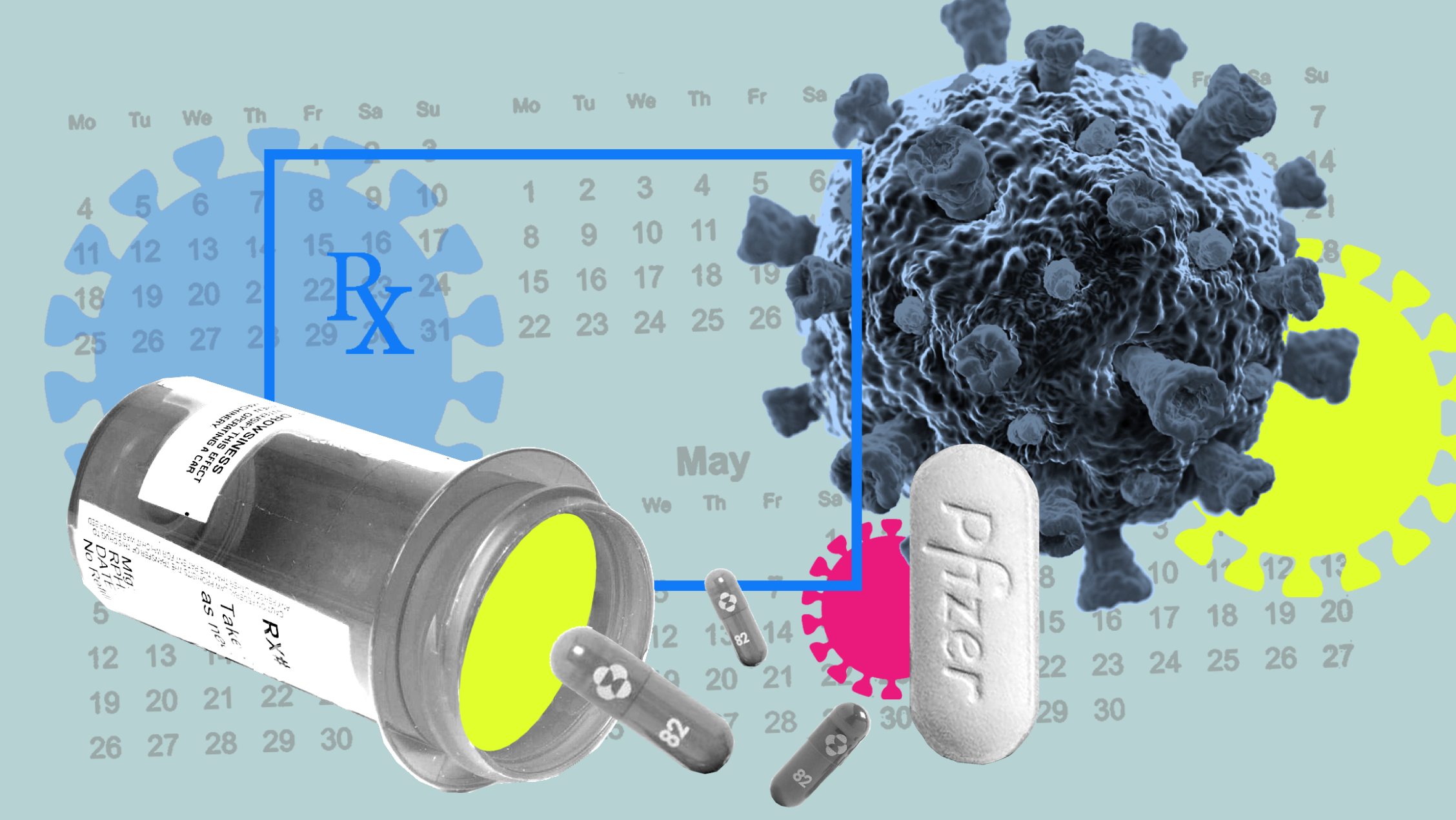A pill for covid
Easy to take pills that prevent severe covid-19 could work against the next pandemic, too.

Key players
Merck, Pfizer, Pardes Biosciences
Availability
Now
Remember hydroxychloroquine, a malaria treatment taken by Donald Trump, and ivermectin, the horse dewormer that sent people to poison control? These drugs weren’t effective against covid-19. But people desperately wanted them to be. The dream was a pill you could swallow to make the virus go away.
Now the real thing is here: pills designed from the ground up to block the covid-19 virus. And they work. Given to people within a few days of infection, an antiviral from Pfizer slashes the chance of hospitalization by 89%. The US government has already placed orders for $10 billion worth of the new drug, called Paxlovid.
The new pill was no lucky stab in the dark. Chemists designed it to mess with the virus’s ability to copy itself. The medicine locks onto and blocks a protein, called a protease, that’s at the core of covid’s menacing replication machinery.
Similar protease enzymes exist in other types of coronavirus. That means Pfizer’s drug could also be a ready defense against the next pandemic. And scientists are sure that more pathogens like SARS-CoV-2 lurk in bat caves and industrial animal farms.
The new antiviral drugs—there’s also one from Merck that targets a different mechanism in the virus’s replication—took longer than covid vaccines to design, synthesize, and test. But they still set records. Never before has an entirely new molecule to defeat a disease gone so quickly from a chemist’s bench into the mouths of volunteers and gained approval from the US Food and Drug Administration. The CEO of Pfizer, Albert Bourla, said he was “in tears” when he got the news in November that the drug worked.
The pill will prevent many people from dying of covid-19, including people with weak immune systems for whom vaccines don’t work. And if a new variant turns up that defeats vaccines, antivirals could be our last resort.
As part of our 10 Breakthrough Technologies series, discover how covid pills were developed and what to expect next.
Deep Dive
Biotechnology and health
The Biggest Questions: What is death?
New neuroscience is challenging our understanding of the dying process—bringing opportunities for the living.
I received the new gene-editing drug for sickle-cell disease. It changed my life.
As a patient enrolled in a clinical trial for Vertex’s new treatment, I was among the first to experience CRISPR’s transformative effects.
The lucky break behind the first CRISPR treatment
Gene editing for sickle-cell is here. This is how researchers knew what DNA to change.
Medical microrobots that can travel inside your body are (still) on their way
Microrobots released into the body could bust up clots, deliver cancer drugs, and even guide listless sperm to their target.
Stay connected
Get the latest updates from
MIT Technology Review
Discover special offers, top stories, upcoming events, and more.